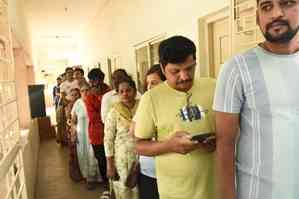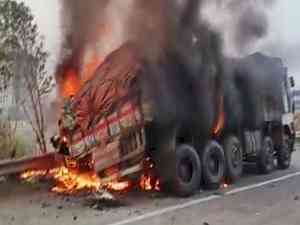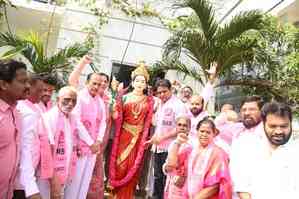Tribunals with judicial functions must have judicial officers only: SC
New Delhi, July 22 (IANS) The Supreme Court Tuesday said tribunals were discharging judicial functions which were in the domain of the high courts, thus they should be manned by judicial officers only and function under an independent supervisory...

New Delhi, July 22 (IANS) The Supreme Court Tuesday said tribunals were discharging judicial functions which were in the domain of the high courts, thus they should be manned by judicial officers only and function under an independent supervisory body and not the government.
Advocating an independent supervisory body to monitor the administrative functioning of tribunals, a constitution bench of Chief Justice R.M. Lodha, Justice Jagdish Singh Khehar, Justice J. Chelameswar, Justice A.K. Sikri and Justice Rohinton Fali Nariman said that tribunals should be "independent from all counts and from all aspects".
"If you transfer judicial powers from high courts to tribunals, then these tribunals can only and only be manned by the judicial members," the court said, asking if the constitution permits "judicial powers being exercised by non-judicial minds and people".
"The legal mind is not acquired by anybody or everybody. It is acquired by experience and skill," it said.
Defending the setting up of the tribunals in their present form, Attorney General Mukul Rohatgi said that the purpose was to "reduce the load (of cases) on the high court which they were unable to decide for a long period".
Taking exception to Rohtagi's submission, Chief Justice Lodha said: "It is for the government to provide for judiciary. Laws after law after laws were being enacted. People were approaching the court for the enforcing of their rights. High courts have 20, 30. 40 judges. There is no infrastructure. No facilities. This is an assault on the constitutional scheme."
"If that is so then it must go because they are controlled by the political executive (government)," the court said as Attorney General Rohatgi told the court that "tribunal is a case of transfer of judicial power" of the high court.
As Rohatgi said that these tribunals were under the law ministry, the court observed that these were just labels but they are government.
As he told the court that he would advise the government for creating such an independent body, the court said: "Whatever forum you may create but it has to be independent on all counts."
The court wondered why even after 17 years, there was no independent mechanism to supervise the administrative functioning of the tribunals.
As Rohatgi sought to describe it as a "teething problem", the court said that it had heard of "teething problem in a child, not in a 20-year-old (in an obvious reference to span of functioning of tribunals and an earliere judgment of the apex court)".
Defending the working of the tribunals in last 20 years, Rohtagi said that there was nothing alarming in their pronouncement to question their verdicts. He said that their pronouncement would gain finality only after an appeal before the apex court.
"It is difficult to say that while deciding matter in a water tight situation, they (tribunals) will not decide other laws. But the trouble is that ITAT and NTT (National Tax Tribunal) decides only those questions for which they require a trained judicial mind," said Justice Nariman.
Countering Rohatgi's appreciation of non-judicial members of the tribunals who were giving expert inputs on specialised laws, the court asked him if a non-judicial member who has specialised in accountancy be a high court judge.
The court was hearing a batch of petitions challenging the National Tax Tribunal Act and article 323 (b) of the constitution, providing for establishment of tribunals for other matters.

 cityairnews
cityairnews 
















